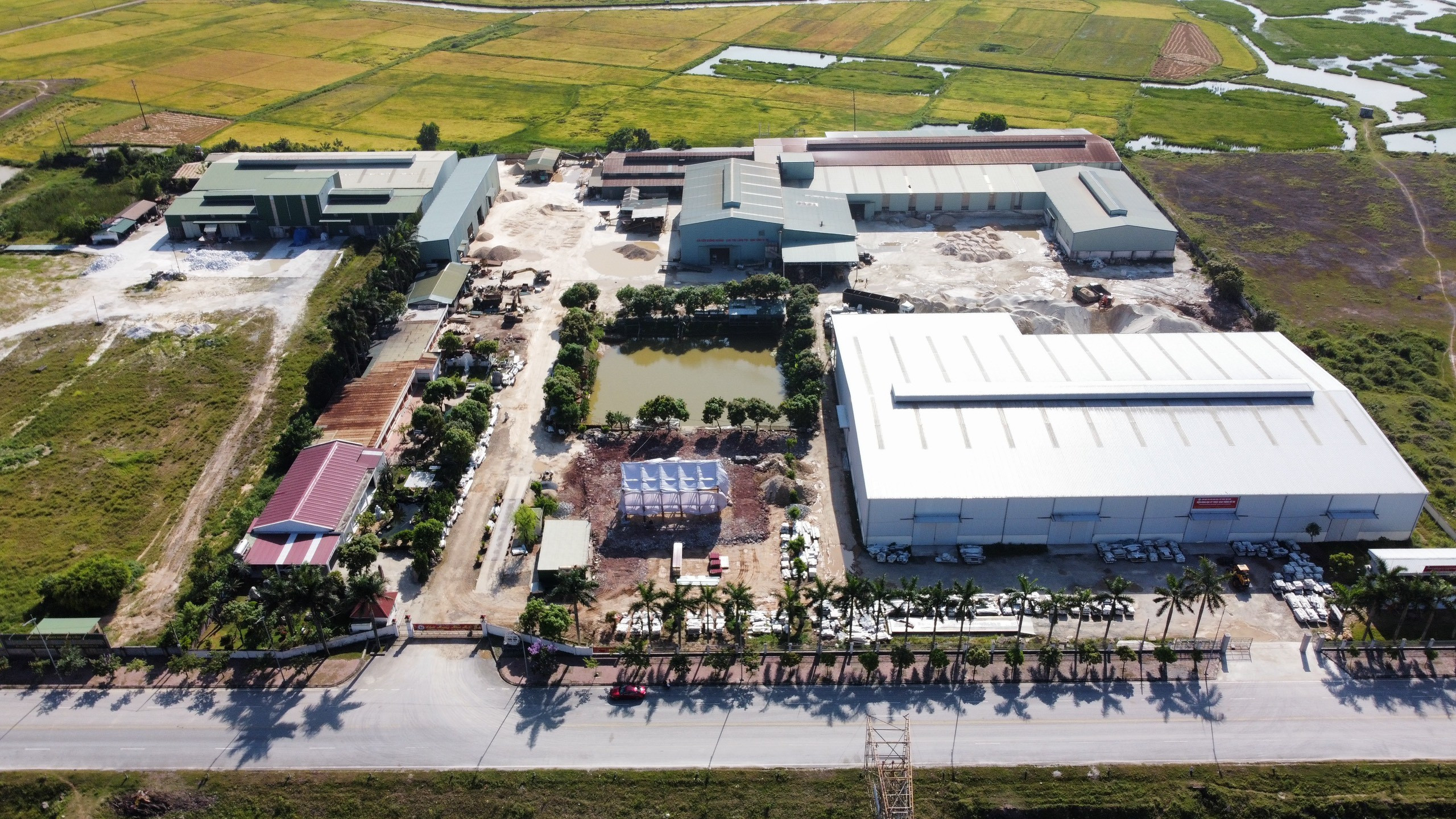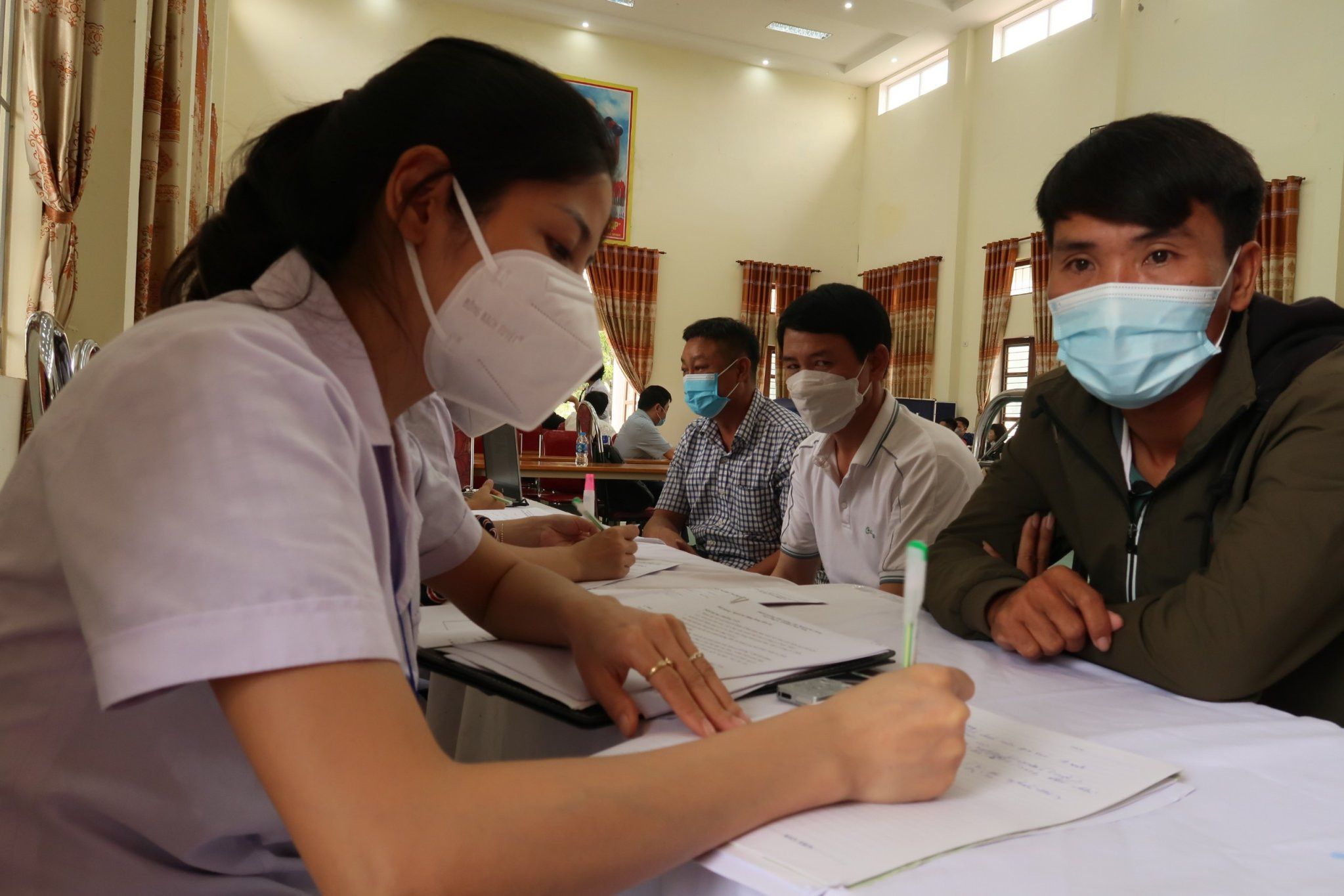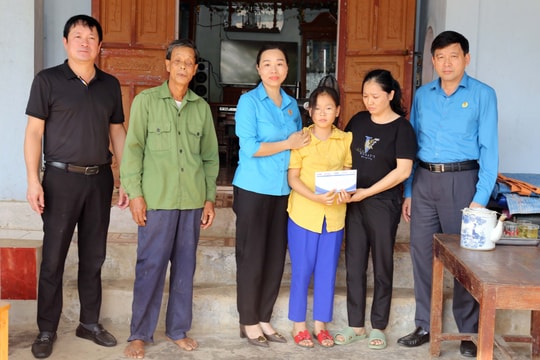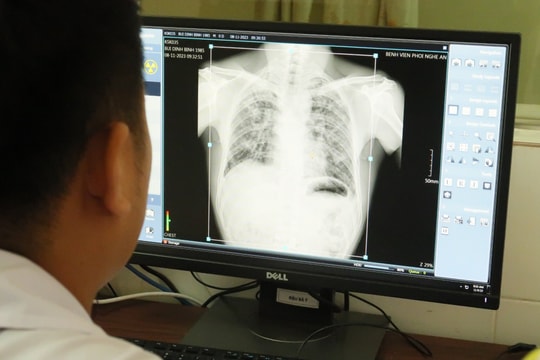Nghe An investigates responsibility for a series of workers with pneumoconiosis
(Baonghean.vn) - Currently, Nghe An province is focusing on directing the overcoming of existing problems at the company, while clearly defining the responsibilities of the relevant collectives and individuals.
The company must be responsible before the law.
It has been nearly 2 months since the Occupational Disease Investigation Team of the Department of Health concluded that 62 out of 87 people who have worked at Chau Tien Company Limited (located in Nghi Long Commune, Nghi Loc District) have silicosis, but Mr. Hoang Sy Quyet (38 years old, Dien Loc Commune, Dien Chau) has not received any notice from the business owner. Mr. Quyet, like many others, only knew that he had silicosis after receiving information from reporters.
Until now, no one has informed or instructed us what to do. While this disease can only be cured if detected early and taken to the hospital early.
Mr. Quyet has only been working at Chau Tien Company Limited for about 9 months, in the mechanical department, but the medical examination results show that he has severe silicosis. However, Mr. Quyet is still working at this company.
Unable to wait for the company, Mr. Quyet and two colleagues recently went to the Central Lung Hospital for a check-up. The results showed that one of his colleagues was sent home because his condition was too severe and could no longer be cured. “As for me, the doctors said I have silicosis, but I need to be monitored further. I will come back for a check-up in 3 months,” Mr. Quyet said. After returning home from the hospital, Mr. Quyet continued to return to work at the company.
According to Mr. Quyet, the company has stopped production for a long time, but there are about 10 workers still working here with the task of dismantling machines in the factories. Among these 10 workers, many are confirmed to have silicosis. "We asked the manager many times, but the manager also has severe silicosis. When we asked the boss, he did not say anything, just avoided the question," Mr. Quyet added.

Regarding this incident, at a recent press conference on the province's economic, social, defense and security situation, Vice Chairman of the Provincial People's Committee Bui Dinh Long said that the province is currently focusing on directing the resolution of the shortcomings of Chau Tien Company Limited in the past time, while determining the responsibilities of relevant collectives and individuals.
Mr. Le Tien Tri - Head of the Management Board of the Southeast Nghe An Economic Zone assessed that this is a very serious incident.
The Provincial People's Committee has directed the establishment of an interdisciplinary inspection team, pointing out many violations at the company such as environmental monitoring and labor safety. The province has also issued decisions to fine Chau Tien Company Ltd. more than 110 million VND.
After imposing the fine, the People's Committee of Nghe An province also assigned responsibility to departments, branches, localities and Chau Tien Company Limited to overcome shortcomings and limitations such as investment activities, labor safety and hygiene, policies for workers...; "The company must be responsible before the law and the sick workers. Specifically, the enterprise must compensate the relatives of the deceased, compensate and support according to regulations for workers who have been determined by the occupational disease investigation team to have pneumoconiosis", Mr. Tri emphasized.
Sick people are compensated
Mr. Nguyen Anh Tho - Director of the Institute of Labor Safety and Hygiene Science said that at the end of November 2023, he also led a working delegation of the Vietnam General Confederation of Labor to Nghe An to grasp the situation, visit relatives and workers of Chau Tien Company Ltd. who died and were hospitalized because ofpneumoconiosis.
“When the working group came to work at Chau Tien Company, the company had temporarily stopped operating. At this time, although the factory system and machinery had been cleaned, tidied, and arranged, through observation, it was still possible to clearly see the stone dust still sticking and remaining on the surfaces and walls of the factory. It can be said that, with the remaining technological system that we saw, if it were to operate, the risks of danger would be very high,” said Mr. Tho, adding that the dust extraction and filtration systems here could not help reduce the amount of dust emitted. With factories built in large, closed spaces, without isolating the source of dust emission like this, most people working in that environment are at risk of exposure to dust at high concentrations.

Chau Tien Company Limited was established nearly 20 years ago, used to be a facility for processing superfine stone powder (CaCO3). In 2017, the Company officially went into production with a production line of stone powder and silica stone products. The input material is cobblestone, with a composition of over 99% silica. The Company's products have 2 lines: white silica stone powder (5 sizes from 0.1 mm to 5 mm) to serve as raw materials for stone pressing factories (marble), floor lining stone for steel mills, in addition to collecting stone dust during the grinding process to supply and mix into steelmaking materials. Although the working environment is high risk, this company does not organize environmental monitoring, occupational health examinations, or periodic examinations for workers.
“In 2017, this company changed its technology. The first change that could lead to silicosis is the stone material – the raw material for the production line. Switching from silica-poor stones to silica-dense stones,” Mr. Tho said, adding that, according to the results of environmental monitoring after the incident, there is enough basis to assess that those who work here, whether for a short or long time, are at risk.
According to Mr. Tho, there are cases where silicosis is discovered 35 years later, but it is still confirmed that it is an occupational disease due to exposure in the working environment. It is not that the worker is no longer working, or the worker has died after retirement, so it is not possible to determine the occupational disease, or the responsibility of the employer. And the responsibility to determine that is of the investigation team, the state management agency.
According to the provisions of the Law on Occupational Safety and Health, the main responsibility belongs to the employer. The employer must bear the treatment costs and must compensate. As for employees who fully participate in social insurance, they will receive subsidies and support from the insurance fund, and insurance costs according to regulations. If the enterprise does not fully participate in social insurance for employees, all treatment costs must be paid by the employer. If the enterprise owner does not do so, it will once again violate the law. In addition to causing serious consequences affecting the health and life of employees, the next violation is not fully paying benefits for employees who have accidents or occupational diseases.
Director of the Institute of Occupational Safety and Health Nguyen Anh Tho also said that the story of occupational diseases is not yet as concerned as work accidents. Many occupational diseases lead to death after being detected, but information about clusters of cases is rarely fully reported and rarely receives attention from the press. There is only information about the number of people infected, the number of people examined, and the number of people at risk. As a result, those numbers do not fully reflect the severity. Management apparatus and business owners have not paid attention to the story of occupational disease prevention during the production process./.



